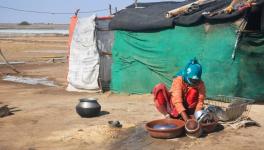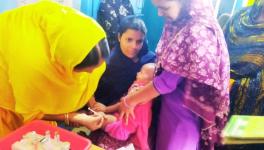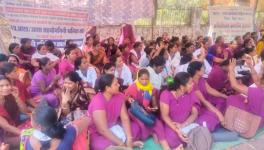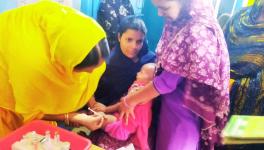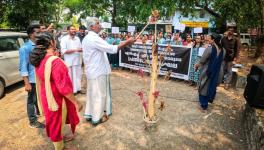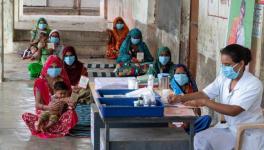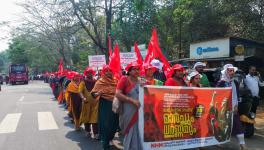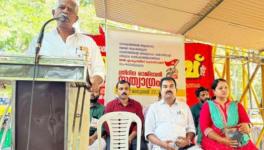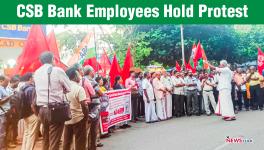Mini Clinics in TN: Outsourcing and Redeployment from Healthcare Units Expose Election Sop?
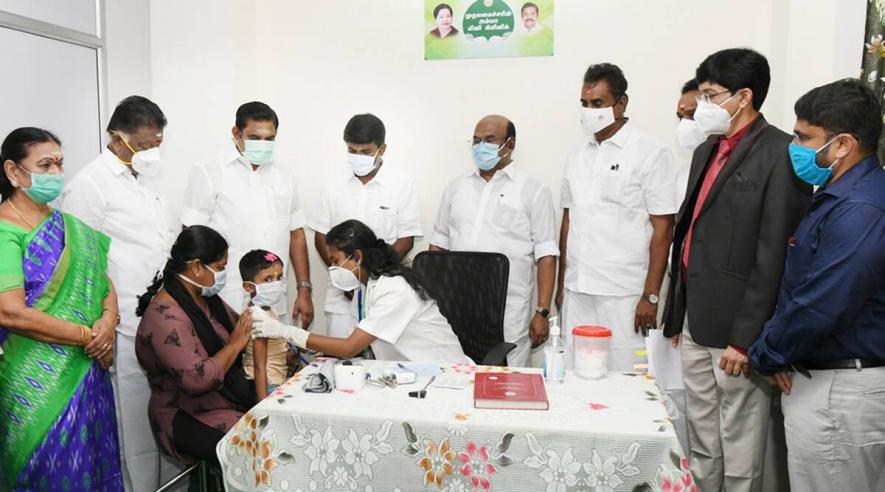
Chief Minister Edappadi K Palaniswami launched a project to set up 2,000 mini clinics across the state. Image Courtesy: The Indian Express
The government of Tamil Nadu has begun the establishment of 2,000 single doctor mini clinics across the state with much hype. While claiming to extend healthcare to rural and urban population, the government has redeployed doctors from other healthcare units including Primary Health Centres (PHC), threatening the existing facilities. The vacuum created in the PHCs may be filled by privatising them, fear the medical fraternity.
The clinics will function for six hours a day with a doctor, a staff nurse and a hospital worker and treat people with fever, cold and headaches, the practice followed by fever clinics conducted during the COVID-19 pandemic.
The decision to deploy doctors and nurses to the clinics from other projects while outsourcing the job of hospital worker, have raised several questions on the future of the public healthcare system.
WHY NOT IMPROVE EXISTING FACILITIES?
With the Assembly election due in May 2021, the ruling All India Anna Dravida Munnetra Kazhagam (AIADMK) government is trying its best to project itself as a people friendly government. The announcement of the mini clinics, too, fall under the similar category.
The government has decided to implement the mini clinics in three phases: 630 clinics before December 15, followed by 630 and 740 in the next two phases. Though the fever clinics have helped in containing and identifying the COVID-19 cases, the government seems to be carried away by the model, sacrificing the basic need of healthcare in areas where the facilities are available.
Also see: Tamil Nadu’s Performance in the Health Sector Worrisome?
However, the need of the hour is strengthening the infrastructure of the public healthcare system and upgrading of several PHCs and taluk hospitals to the next level. Explaining this, an assistant professor in a government medical college, who wanted to remain anonymous, said, “Our state had a wonderful record in health index until recently and the performance of the state has deteriorated in the last couple of years. The very reason is the lack of new appointments and infrastructural developments in the existing networks from PHCs to the medical colleges. The government is diverting the attention of the public for political gains.”
DEPLOYMENT WILL AFFECT PUBLIC
The announcement of deploying one doctor from PHCs, where there are lesser patients and deliveries in rural areas has also created apprehension. Not only that, the government has deployed doctors from other crucial sections including the Mobile Medical Units (MMU) and the Rashtriya Bal Swasthya Karyakram (RBSK).
“The PHCs are vital for the rural public and taking one doctor away for the mini clinics will affect the dependents. The one doctor concept itself is highly impractical, since the absence of the doctor for their personal emergency will create a negative impression among the public,” said the doctor.
The MMUs and RBSk team are given the task of meeting people at different locations and cater to their medical needs, since the rural population may not be able to reach the hospitals at far away places.
The services to school and college students, rural and industrial workforce face the threat of being stopped with this decision. Though the government has claimed to have made this as a temporary arrangement, the medical fraternity is apprehensive as the government has hardly conceded to the demands of doctors and nurses in recent years.
DOCTORS AND NURSES ASSOCIATION RAISE CONCERN
The Tamil Nadu Government Doctors’ Association (TNGDA) has rung the alarm bells in a submission to the Secretary of Health. The possible increase in working hours and lack of necessary infrastructure in the proposed mini clinics have been pointed out.
“The clinics are announced to function from 9 AM to 12 PM and from 4 PM to 7 PM. Most of the clinics are expected to come up in the rural areas with very little connectivity. If that is the case, the doctors and other staff had to remain in the clinic for 10 hours a day, which is not practically feasible,” the statement said.
The TNGDA has flayed the decision to redeploy the doctors from MMU and RBSK and demanded the appointment of 2,000 doctors through the medical recruitment board to increase the effectiveness of the scheme.
The Tamil Nadu Village Health Nurses Association (TNVHNA) has questioned the move of the government to commence the mini clinics close to the PHC in certain areas. The government order insists on the commencement of clinics in villages which are at least 7 kms away from existing government health facilities, including PHC, upgraded PHCs and Community Health Centres.
“The decision to convert some PHCs into mini clinics after forcing the nurses to vacate the PHCs is highly condemnable. There are rural areas, fishing hamlets and tribal villages which require the fundamental healthcare facilities, which the government should concentrate on,” said an office bearer of the union.
These can also increase the workload of the doctors and nurses, as there is no pharmacy staff in the mini clinics. The multitasking of work, increased working hours, and lack of infrastructure facilities could hamper the very purpose of the scheme.
OUTSOURCING OF WORKS
The government has claimed to appoint doctors in the urban areas through the National Urban Health Mission. An order of the Director of Public Health and Preventive Medicines issued on December 15 has informed of outsourcing the appointments of staff nurses and health workers.
The order states that the NHM has approved to fill up the post of staff nurse with GNM qualification sanctioned under 2,448 health and wellness centre through the district health society on outsourcing basis till March 2021.
Also see: 'Failure of Public Health System Resulted COVID-19 Spikes'
The order also stated the permission granted by the NHM for the appointment of 585 multipurpose hospital workers through outsourcing. The remaining 1,415 vacancies would also be appointed through outsourcing till March 2021 at a salary of Rs 6,000 per month.
The short tenure of the appointment and the pace at which the scheme is implemented, clearly signals the concerns of the government in seeking publicity and saving their face in the elections. The government by doing so, also puts the life of the public at risk.
The government could also invite private players into the existing government healthcare facilities, citing lack of doctors and other staff. The medical fraternity has raised concerns with the government on the haphazard commencement of the mini clinics, but the government has so far remained unresponsive to their concerns.
Get the latest reports & analysis with people's perspective on Protests, movements & deep analytical videos, discussions of the current affairs in your Telegram app. Subscribe to NewsClick's Telegram channel & get Real-Time updates on stories, as they get published on our website.










